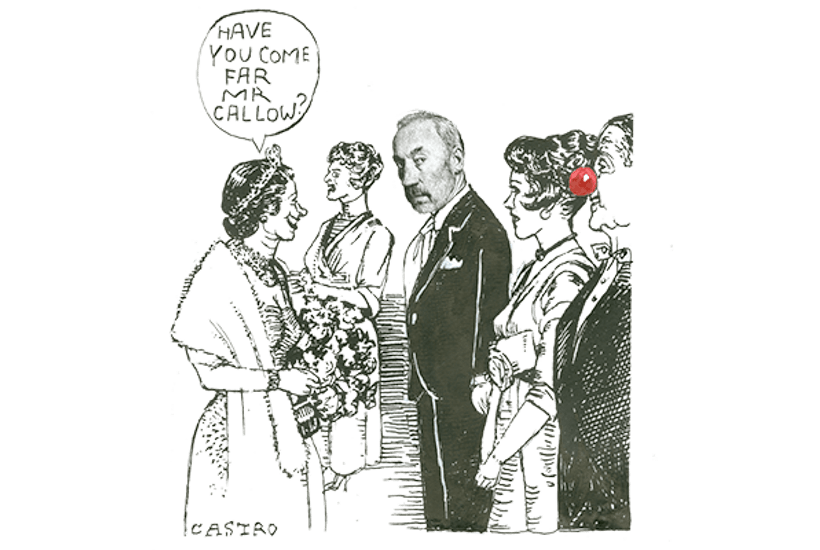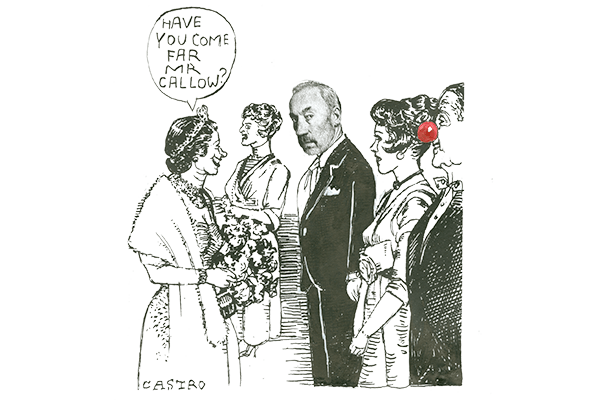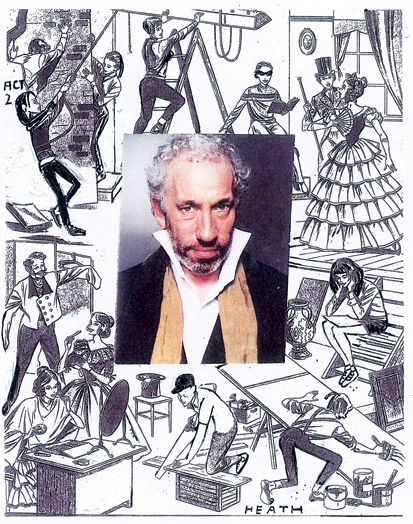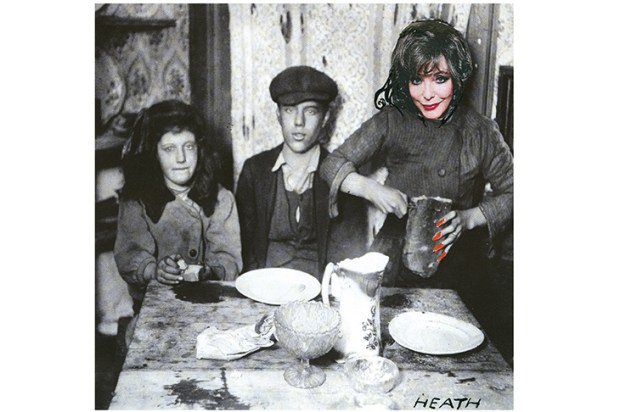It is delightful to be writing for a magazine I’ve read, man and boy, since I was 15. Such is my affection for The Spectator that I felt a particular puff of pride when my name appeared on the cover a few weeks ago. The fact that the words in question were ‘Simon Callow’s Wagnerian disaster’ barely dented my pleasure. It advertised a quite collectibly horrible review of a short biography of Wagner I had written. The reviewer was Michael Tanner, a great explicator of philosophers, and indeed of Wagner himself. The review, dripping with scorn, had a certain personal edge to it. After having for my work as either actor, writer or director held up for scrutiny for over 40 years now, I became aware at a certain point that, as Orson Welles ruefully observed of himself, they don’t review my work any more; they review me.
My most indelible review was from James Fenton, then theatre critic of the Sunday Times: ‘Mr Callow’s stomach is a dreadful warning to us all,’ he said. The play was Christopher Hampton’s youthful masterpiece, Total Eclipse, in which, stomach and all, I played the poet Verlaine. I saw all of Christopher’s early work as it came out; he was my writer, the playwright of my own times who spoke most directly to me. His first two plays dealt with sexual complexity, and he did it with a kind of restrained elegance and eloquence that his more ferocious confrères weren’t attempting. He wrote, and writes, with a suppleness and a subtlety which is unique to him: the word lambent comes to mind. ‘Playing lightly and brilliantly over its subjects; gracefully sportive,’ says the OED. Just so. Mozartian is another word that comes to mind. At the moment, I’m directing The Philanthropist, which Hampton wrote for the Royal Court when he was 23. I’ve cast the play with a gang of brilliant young actors, some of whom have hugely successful careers as comedians on the television. It would not be unfair to say that they have never in their professional experience encountered material like Hampton’s, and I have been urging them to reform their habits of speaking and thinking in order to savour the pleasures of civilised discourse, of perfectly formed sentences and deftly turned paradox, seething away underneath with all the usual human appetites, lust, avarice, sloth, anger, vanity, pride, greed. They’re taking to it like ducks to water, or hearty eaters just discovering the delights of haute cuisine.
Simon Callow talks to the podcast about bad reviews and good plays:
The Philanthropist, I had forgotten until I read it again, takes place against a backdrop of public violence startlingly reminiscent of our own times. In the play, the characters briefly acknowledge what has happened, and then resume the far more pressing and interesting concerns of their professional and love lives. This seems to me entirely true to life. The same thing happens in William Gerhardie’s wonderful, though I suspect largely forgotten, novel Futility, which takes place in Moscow during the Bolshevik revolution of 1917. The action is principally concerned with the hero’s infatuation with three sisters; neither he nor they pay much attention to the explosions, ambushes and occupations which continue noisily all around them. Gerhardie was present in Moscow during the revolution, and was similarly infatuated, so he knew whereof he spoke.
Last month I was at a memorial for the great hoofer Steve Clark, who died recently aged 92, and had once danced for Al Capone. He danced for me, too, at Wilton’s Music Hall on my 60th birthday, when he was a mere 85. The service took place in St Mary’s Twickenham, the exquisite 18th-century church in which Alexander Pope is buried; it must have been the first time the church had been filled largely with black people, and certainly the first time there has been tap-dancing on the altar. The non-black part of the congregation were variety artistes (all white) with whom Steve had worked over the years. Many of the men were members of the venerable Grand Order of Water Rats: they sang a quirky little song, always sung at memorials for departed fellow Rats, with stentorian fervour. They were dressed in grey suits, but the black members of the congregation were dressed in black, very formal and proper and somehow, in its sombre way, celebratory.
Jokes were told and Steve’s foibles fondly recalled. I said a few words about him, concluding that I was certain that he was even now teaching the angels to tap-dance on the head of a pin. A number of black women, young and old, came up to the altar and sang the blues to heartstopping effect, while the C of E clergyman — properly formal, though with a fine sense of theatrical effect — conducted the ancient ceremony, intoning the old familiar words from the New Testament. It was all of it — Water Rats and old hoofers, young black women and Alexander Pope and the Gospel According to Mark, all swirling around together — unbearably moving and very funny and a perfect paradigm of our wonderfully rich society.
The Philanthropist, directed by Simon Callow, opens at the Trafalgar Studios in London on Monday 3 April.
Got something to add? Join the discussion and comment below.
Get 10 issues for just $10
Subscribe to The Spectator Australia today for the next 10 magazine issues, plus full online access, for just $10.
You might disagree with half of it, but you’ll enjoy reading all of it. Try your first month for free, then just $2 a week for the remainder of your first year.














Comments
Don't miss out
Join the conversation with other Spectator Australia readers. Subscribe to leave a comment.
SUBSCRIBEAlready a subscriber? Log in